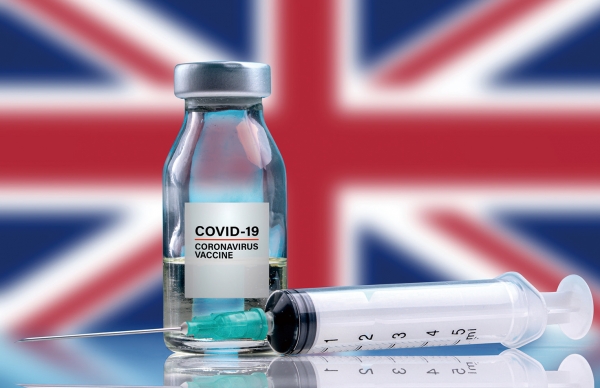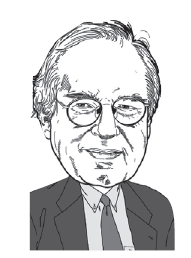
런던 = 사람들에게 마스크를 쓰라고 말하는 표지판들은 영국과 미국의 도시 거리에서 쉽게 무시된다.
런던 중심부에 있는 피카딜리에 있는 약국 입구에서 경비원에게 마스크 미착용자의 출입을 거부할 수 있는지 물었을 때 그는 “할 수 있는 일이 뭐가 있을까요?”라고 답했다. 약국에 들어오는 대부분의 사람들은 마스크를 쓰고 있었지만 경비원은 쓰지 않은 사람들에게 아무 말도 하지 않았다. “관련법이 없다. 그냥 요청할 뿐입니다.”고 말했다.
비슷하게 미국과 대부분의 다른 나라에서 사람들은 마스크를 쓰도록 강요받지만 많은 사람들은 마스크가 필요하다고 생각하지 않는다. 그들은 마스크가 별 도움이 되지 않을 것이며 단지 대유행의 와중에 그들의 힘을 보여주기를 갈망하는 정부들이 권하는 성가신 일일 뿐이라고 말한다.
미국인이나 영국인 모두 마스크를 착용하지 않은 것에 대해 벌금을 부과하지 않으며 가게나 보도에 있는 표지판에 인도에서 2미터 거리 지키기나 서비스를 받는 동안 떨어져 서 있으라고 말해도 사회적 거리 두기를 강요할 방법은 없다.
하지만 마스크를 착용하는 것에 대한 논쟁은 방학이 끝난 후 모든 학생들이 공부를 다시 시작하는 것에 대한 논쟁만큼 심각하지 않다. 미국과 영국의 행정가들은 모든 학교에 휴교를 내려야 할지 혹은 고등학교만 내려야 할지, 아니면 고등학교와 초등학교에만 휴교를 내릴지 아니면 유치원은 제외해야 되는지 거의 의견이 일치하지 않는 것 같다.
일부 학군의 교사들이 원격으로 수업을 하는 것보다 학교에서 가르칠 경우 코로나에 노출된다는 항의에 대한 논쟁이 곳곳에서 가열되고 있다. 일부 부모들은 자녀들이 수업에 참여해야 할 경우 위험에 노출된다고 믿는 반면, 다른 학생들은 학교에 가는데 아이들이 일부 지역에서는 집에서 수업을 듣게 되는 경우 그들이 차별을 받는다고 말한다.
마스크 착용 인식, 한국과 다른 미·영 국민들
고등교육의 수준에서 대학은 원격 또는 직접 수업을 제공해야 하는지에 대해 매우 다양하다. 학생들은 종종 그들이 원격으로 수업을 듣는 동안 특정 수업과 교과 과정에 출석해야 한다는 것을 알게 된다. 각주마다 무엇을 할지 결정할 자유를 가지고 있는 상황에서 실제로 미국에서 공통의 정책들을 집행할 수 없다.
트럼프 대통령은 1월 20일 바이든이 취임하기 전 대통령 선거 결과를 되돌리기 위한 끊임없는 노력으로 코로나 위험을 무시하고 관리들이 코로나 확진자수를 과장하고 있다고 비난함으로써 상황을 악화시켰다.
코로나에 대한 트럼프의 대응은 미국이 어느 나라보다 확진자수뿐만 아니라 사망자수도 가장 많다는 점을 고려할 때 주요 국가의 지도자 중 가장 무책임한 것일 수 있다. 트럼프는 다른 국가들이 발표된 것보다 더 많은 확진자들이 있다고 주장한다. 그러나 대부분의 국가 지도자들이 트럼프가 질병 퇴치 운동을 주도했던 것보다 훨씬 더 단호하고 효과적으로 행동했다는 것에는 의심할 여지가 없다.
한국 방역 성공, 백신 유통 및 투여 속도에 달려
사람들에게 부과되는 검역에 대한 의문이 생긴다. 영국과 미국은 둘 다 방역 형태의 자기 격리의 필요성에 대해 이야기하지만 사람들을 그렇게 많이 감시하지 않는다. 예를 들어 영국은 특정 국가에서 입국할 때 최소 10일 동안 격리시키라고 명령한다. 한국과 일본에서 새로 입국한 사람들은 두 나라 모두 투병 기록을 인정해 면제되지만 다른 나라 사람들이 얼마나 엄격하게 격리되어 있는지 알 길이 없다.
영국과 미국 모두 공항에서 전화기에 앱을 설치해 사람들이 온도 판독 값을 보고하고 기침, 두통 등에 관한 질문에 답하도록 하는 한국에서 고안된 자체 보고 시스템을 갖고 있지 않다. 또한 이 국가들 중 어느 국가도 한국처럼 신규 도착에 대해 코로나 검사를 시행하지 않는다. 그러나 영국은 코로나 검사를 실시하는 사람은 누구나 결과가 음성일 경우 조기에 자가 격리에서 벗어날 수 있다는 점을 분명히 하고 있다.
하지만 한국을 포함한 일부 국가들이 정말로 불공평한 조치를 채택하고 있는 것일까? 어떤 사람들은 한국이 독재적으로 취하는 벌금과 다른 벌칙이 과도하다고 주장할지 모른다. 경찰이 마스크를 착용하지 않은 사람들에게 딱지를 발부하는 권한, 법적인 소환은 지나친 것처럼 보일 수도 있다.
그러나 마스크가 질병으로부터 보호하게 된다면 그들은 확실히 발생률을 낮춘다. 마스크 착용이 그렇게 효과적인지 필요한 것인지에 대해 분명 논쟁의 여지가 있지만 그 기록은 마스크 착용이 아마도 좋은 생각이라는 것을 보여준다.
그러나 미국과 영국은 마침내 대유행의 확산을 막아야 할 백신을 보유하고 있는 것에 대해 신뢰할 만하다. 화이자와 아스트라제네카 백신은 현재 모든 최초 대응자들을 포함한 수백만 영국인들에게 투여되고 있다. 즉, 병원과 클리닉에서 일하는 동안 정기적으로 코로나에 노출된 사람들과 그 다음 단계인 75세 이상의 사람들에게 투여되고 있다. 미국은 또 다른 백신인 모데나를 같은 패턴으로 따르고 있다. 올해 말까지 백신을 원하는 모든 사람들에게 투여하는 것이다.
또 다른 측면에서 볼 때 대유행을 막기 위해 영국과 미국에서 취한 조치들은 아주 비슷하다. 식당, 술집, 커피숍은 이제 두 나라 모두에서 엄격하게 포장 기준으로 음식과 음료를 제공한다. 나는 워싱턴, 뉴욕, 런던의 식료품점 카운터, 식당, 커피숍에서 음식을 먹기 위해 사람들이 2미터 거리 지키는 것을 봤다.
매니저와 점원들은 주문을 기다리는 동안 정기적으로 고객에게 마스크를 착용하도록 요청한다. 만약 그들이 법적으로 마스크 쓰게 하는 것을 강제할 수 없다면 그들은 끊임없는 요청으로 고객들을 당황하게 할 수 있다. 직원들의 경우 그들은 마스크를 쓰거나 직장을 잃거나 둘 중 하나를 선택할 수 있다.
한국이 마스크 쓰기를 요구하고 새로운 입국자들을 격리시키는 데 있어 영국이나 미국보다 더 강경하다는 것은 의심의 여지가 없다. 한국이 미국이나 영국보다 대유행과 싸우는 데 더 좋은 기록을 가지고 있다면 코로나를 정복할 수 있는 능력은 백신이 유통되고 투여되는 속도에 달려 있을 것이 분명하다. 질병 퇴치를 위한 투쟁은 이번 겨울 백신들이 보편적으로 사용됨에 따라 모든 국가에서 가장 혹독한 시험을 앞두고 있으며 우리는 백신이 우리가 믿었던 것만큼 효과가 있는지 아닌지를 알게 된다.
번역 미래한국 편집부

U.S. and Britain Hardly Enforce Face-Masking and Quarantining, but They May Do Better Than Korea in Distributing Vaccines
LONDON= Signs telling people to wear face masks are easily ignored on the streets of British and American cities. At the entrance to a pharmacy on Piccadilly in central London, I asked the guard at the door if he could deny entry to anyone not wearing a face mask, and he asked, “What can I do?” Most people entering the pharmacy were wearing masks, but the guard said nothing to those who did not. “There’s no law,” he said. “It’s just a request.”
Similarly, in the U.S., and in most other countries, while people are urged to wear masks, many simply do not believe they are needed. They say they won’t do any good and are just annoyances recommended by governments anxious to show their power in the midst of the pandemic. Neither the Americans nor the British are likely to fine people for not wearing face masks, and there’s no way to enforce social distancing even though signs in shops and sometimes on sidewalks tell people to stand two meters or so apart while waiting to be served.
Disagreements about wearing face masks, however, are not nearly as serious as great debates on shutting down schools as students of all ages resume studies after the holiday break. Administrators in the U.S. and Britain hardly seem to agree on whether to close all schools, or just high schools, or high schools and elementary schools but not kindergartens. The debate heats up everywhere while teachers in some districts protest that they are being exposed to COVID-19 if compelled to go to school to teach rather than give classes remotely. Some parents believe their children are taking risks if they have to attend classes while others say they are the victims of discrimination if kids have to stay at home in some districts while others go to class.
On the level of higher education, universities vary widely as to whether to offer classes remotely or in person. Quite often students have to show up for certain classes and courses while taking the rest remotely. Common policies are really not possible to enforce in the U.S. with different states having the freedom to decide what to do within their own borders. President Trump has made matters worse by accusing officials of exaggerating on the number of cases of COVID, by playing down the dangers while focusing on ceaseless efforts to undermine and turn around the results of the presidential election before Joe Biden’s inauguration on January 20 as his successor.
Trump’s response to COVID-19 may be about the most irresponsible of any leader of a major country considering that the U.S. has the highest number of cases, as well as deaths, of any country. Trump likes to argue that others have many more cases than acknowledged. There is no doubt, however, that leaders of most countries have acted far more decisively and effectively than has Trump in combatting the pandemic.
Questions arise, though about quarantines imposed on people. Britain and the U.S. both talk about the need for self-isolation, a form of quarantine, but don’t really check on people all that much. Britain, for instances, orders people to isolate themselves for at least 10 days when arriving from certain countries. New arrivals from Korea and Japan are exempt in a tribute to the record of both of them in fighting the disease, but there’s no way of knowing how rigidly people from other countries remain in isolation. Neither Britain nor the U.S. have the type of self-reporting system devised in Korea in which an app is installed in phones at the airport that gets people to report temperature readings and answer questions about coughs, headaches and all that. Nor do either of these countries enforce COVID-19 tests on new arrivals as does Korea though Britain makes clear that anyone taking a COVID test can get out of self-isolation early if the result is negative. As for Japan, it's got a simple solution: no foreigners can enter unless they're on an official mission or are residents with homes in the country.
But are some countries, such as South Korea, adopting measures that are really not fair? Some might argue that fines and other penalties are excessive, that South Korea is taking dictatorial measures. The authority of the police to hand out tickets, legal summons, to those not wearing face masks may seem excessive. If masks are no guarantee of freedom from the disease, however, they surely cut down the rate of occurrence. Whether they are all that effective or necessary is definitely debatable, but the record shows that it’s probably a good idea to wear them.
The U.S. and Britain deserve credit, however, for having vaccines that should finally defeat the spread of the pandemic. The Pfizer and Astra-Zeneca vaccines are now being administered to millions of Brits, including all first-responders, that is, those who are exposed regularly to COVID while working in hospitals and clinics, and then, in the next level, to those above the age of 75. The U.S. is following the same pattern with yet another vaccine, Moderna. The idea is that by the end of this year everyone who wants a vaccine will have gotten it.
In yet another respect, the steps taken in Britain and the U.S. to contain the pandemic are quite similar. Restaurants, bars and coffee shops are able now to serve food and drink on strictly a take-out basis in both countries. I have seen people lining up, two meters apart, for food at grocery store counters, restaurants and coffee shops in Washington, New York and London.
Managers and clerks routinely ask customers to wear face masks while waiting to place orders. If they cannot absolutely enforce face masks as a matter of law, they can embarrass customers by constant requests. As for employees, they have the choice between wearing face masks or losing their jobs.
No doubt Korea is tougher than either Britain or the U.S. in requiring face masks and making certain that new arrivals are quarantined. If Korea has a better record in fighting the pandemic than does the U.S. or Britain, the ability to conquer COVID-19 now depends on the speed at which the vaccines are distributed and administered. The battle to defeat the disease faces its most severe test in all countries this winter as the vaccines come into general use and we learn whether they’re really as effective as we’ve been led to believe.
외부게재시 개인은 출처와 링크를 밝혀주시고, 언론사는 전문게재의 경우 본사와 협의 바랍니다.


